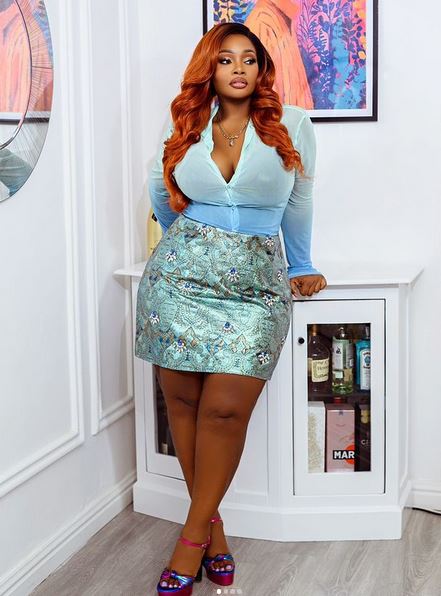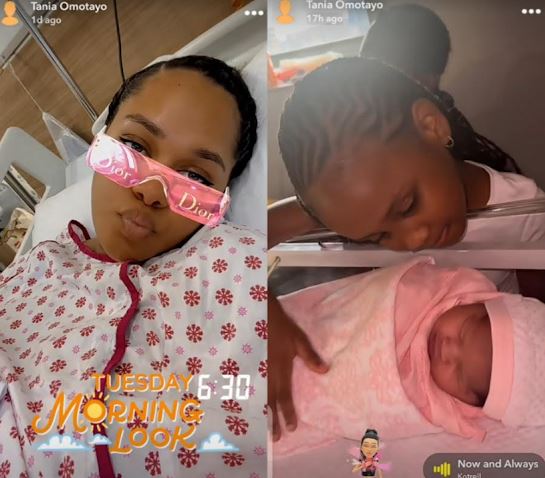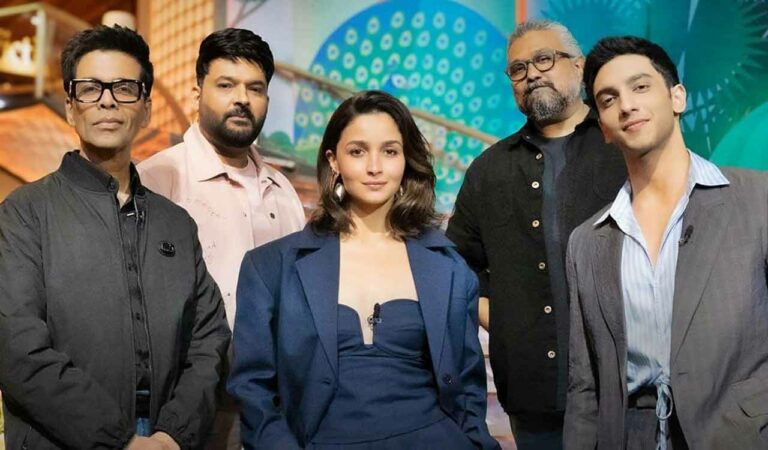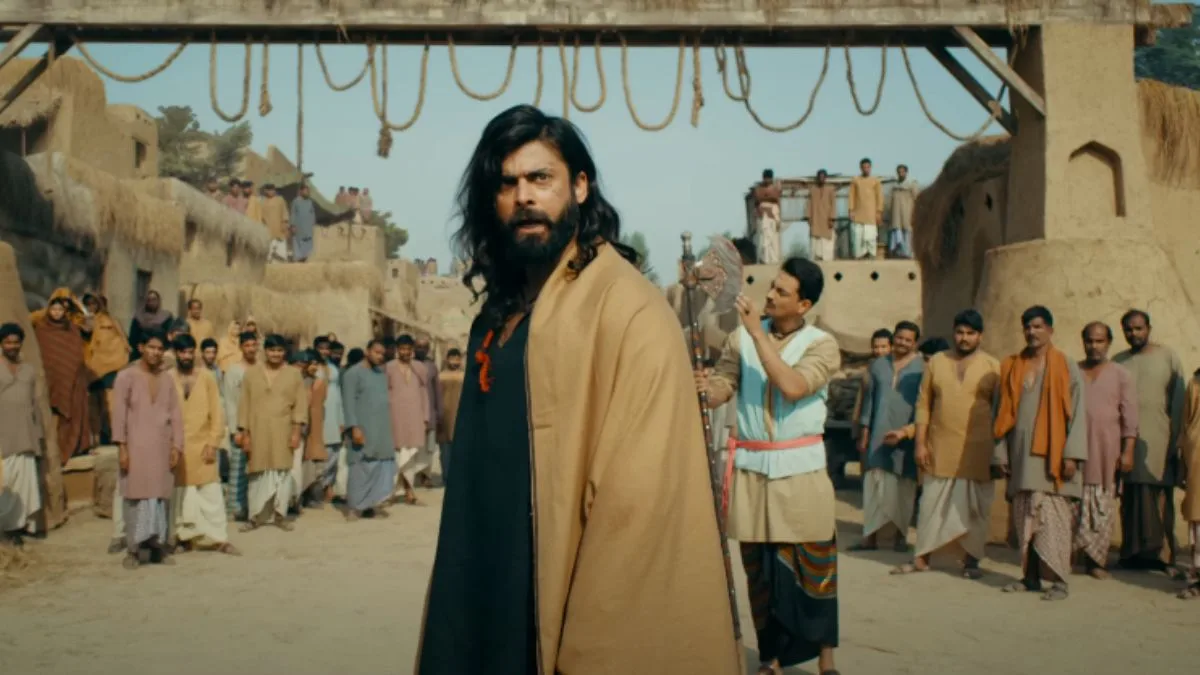
The process of turning Laura Lippman’s 2019 novel into an Apple TV+ limited series began more than three years ago and involves the series’ late executive producer, Jean-Marc Vallée, who . Vallée and producing partner Nathan Ross had read the book, with Ross checking it out quickly after its release thanks to a . Ross told Vallée about the novel, quickly thinking of for the role of Maddie Schwartz, and Vallée wanted Alma Har’el for the project due to her work on the film , Shia LaBeouf’s semiautobiographical drama.
Portman too saw and was impressed by . “Jean-Marc and Nathan brought me the book and told me that I should work with Alma, that she was so incredibly talented, and when I saw I was blown away by her vision, her visual prowess, her character work and I saw that she was just a force to be reckoned with,” Portman told at ‘s New York premiere last month. Ross added to of Har’el, “I was familiar with a doc or two of hers and Jean-Marc was really like, ‘We have to work with this person,’ so he made the initial push for Alma, and then it was up to me to figure it out while he was busy writing and I was busy with producorial things.

” Vallée died during the writing of the show, with Ross recalling how one of the last parts of the project they worked on together was discussing cinematographers, but “his spirit stayed with the project from beginning to end,” Ross said, with Vallée receiving an executive producer credit on the series. “We wanted to do him the honor of him being an executive producer and share a card with him, which I’m proud to do,” Ross said. “I think he’d be proud of [the show].
While I was on set in Baltimore, watching Alma, there were a lot of similarities between them as filmmakers, and that was very interesting. Same in the postproduction process, while she was editing with the editors. Not in a cliche way, but you could feel his presence around this sort of stuff.
” While brought Har’el to the attention of producers, that project also launched collaborations that continued with the series. , who played a young version of the LaBeouf-inspired Otis in , plays Maddie’s angst-filled son, Seth, in . “ changed my life, Alma changed my life and so we remained in contact; we’re good friends.
I kept hearing about this project through her,” Jupe told . “And I eventually got a call and she was like, ‘Would you want to be in it?’ and I was like, ‘Fuck yeah.’ So I was down for it because of Alma and had read the script and was blown away.
The cast is incredible, and it just kept getting better and better.” As for the reasons for Seth’s anger at his mother, Jupe said it’s a combination of “complicated feelings” and his character being a “fucking asshole.” “I think that it comes from a pretty human place that we all go through in the sense that there’s a point in our lives, I’ve certainly had it, where you turn around and realize your parents are real people and real human beings who make mistakes and sometimes make very big mistakes,” Jupe said.
“So I think he’s experiencing that. He’s also learning that the world isn’t such a nice place. It can be very toxic.
He’s trying to suss his place out. He’s angry at his parents. There’s a lot of resentment there, a lot of complicated feelings.
He’s just trying to find his own identity in a way — a lot of teenage angst. He’s also a fucking asshole, like he’s so rude in it. But it does come from somewhere.
It might be slightly justified.” And production designer Jc Molina, who worked on , praised Har’el as a collaborator who let him “dream and create things.” As for the series’ origins, Molina said, “It was a big relationship for all of us.
I think we went through a lot on that film.” actor Y’lan Noel, who plays Maddie’s police officer love interest Ferdie Platt, recalled wanting to work with Har’el and almost being able to do so previously as part of what drew him to the series. “She’s just extremely collaborative,” Noel said of Har’el.
“She really sort of encourages a no fear kind of policy. You feel real comfortable on set, and I think that’s really important when it comes to being creative because that’s when you truly do your best work.” As for what draws Ferdie to Maddie, Noel was quick to pinpoint “her relentless tenacity, that she’s pursuing her dreams, that she’s reinventing herself.
” “And when they meet, my character happens to be along those same lines so I think that’s what draws them to each other,” he said. In addition to following Maddie’s journey from a suburban housewife to budding journalist, the series also fleshes out the book’s titular , , revealing more about her character and life before she’s believed to have been found dead. And after viewers learn that Cleo faked her own death, they see her future.
Speaking with , Har’el explains wanting to tell more of Cleo’s story, the significance of the series’ dream sequences including in the surreal sixth episode, and why unlike , initially characterized as a miniseries, there’s unlikely to be a season two of — at least as far as Har’el is concerned. My guiding principle was to not fall into the same trap as Maddie did. So the book itself, which I adore, was a huge bestseller and read by a lot of people.
It had a major twist in the end that anybody who read the book already knew, and that felt like something that could easily be spoken about online and would take the air out of the show when people read that. I wanted to not rely on that twist with the end of the show and actually give the show more twists and more possibilities to show us what’s not in the book, because I think that’s what’s exciting about making a TV show from the book is not to necessarily show what’s in the book but maybe show what’s in the book that we didn’t get to see. And I think the book itself very much is focusing on Maddie and her need to survive as a woman and follow her dream, which makes her a little oblivious and blind to the struggles and life of Cleo and so to us working on it, it felt that spending time on Cleo’s life and actually discovering something about Cleo we maybe didn’t know and wasn’t in the book is the more exciting way to go.
Our show centers on dreams. These are the dreams of women who are often punished for aspiring to a better life, the dreams of Jewish immigrants striving to achieve the “American dream,” and the dreams of Black communities in Baltimore, who built a thriving economy by betting on their dreams using dream books. This theme culminates in episode six, a feverish ride that weaves in and out of Maddie’s dreams and fantasies as she lies in the hospital.
The episode is driven by “dream logic” and follows Maddie’s attempt to solve the mystery of who killed Cleo Johnson. I wanted to immerse the audience in Maddie’s messy unconscious mind, allowing us to explore her true motives and the way racial discord, a central theme of our show, has seeped into her fantasies of saving Cleo. Personally, I find dream logic to be incredibly realistic.
We all daydream and fantasize as we go about our day and of course dream every night, though some of us choose to dismiss it as a chaotic brain activity with no real significance. I believe our society pays a heavy price for that dismissal. For me, dreams are the one place where we can’t hide from ourselves, and I wanted the audience to experience Maddie in that revealing space before the final resolution of the series.
I had four incredible Black women in my writers room, and it was really important to me to write this show with them. We had , my partner, who plays Slappy and was a consulting producer and also one of the people that was in the writers room. For all of them, the feeling was that the book had done wrong with Cleo and that the book has not given them any satisfaction in terms of what had happened.
There were a lot of conversations about that, they wanted to know what what happened to her. And I know that Laura was extremely excited about, kind of, like, taking the book as a starting point, you know, and then going ahead with it and going to other places with it. So this show, more than anything that I’ve ever done, was a result of working with other people.
I’ve never worked with so many people. I’ve never worked in a writers room. I’ve never had so many people on set, 300, 500 people sometimes on set.
It was the work of many. Television is a very different medium, and even though I obviously come from a more like single, sort of, auteur kind of thinking, or whatever you want to call that, I actually didn’t think that this was the place to do that. I felt that this was an exciting place to open it up and actually find a way to take this story and others a step forward.
The story itself, the book, is inspired by the real death of Shirley Parker. And Shirley Parker’s death remains a mystery forever, and we allowed ourselves to dream, again, about a very kind of different ending for her. I watched a lot of television during COVID, more than I ever had before, and when Jean-Marc Vallée, who’s no longer with us, brought me the book and told me that Natalie is attached to it, and that they both would like for me to come in as a director.
I was really taken by the proposition of working with Natalie and dove into the book, and I felt when I read the book that there was the possibility to explore these two characters who I fell in love with. I mean, I think that there’s something extremely, obviously, seductive about having more time to explore your characters and spend more more time with them. I don’t necessarily think it’s something that is right for every project or every story, but this story specifically, because the book suggested such an opportunity to discover actually more about Cleo, was what drew me in.
It felt like the world of Maddie was so developed and so realized, and the world of Cleo would add a lot of complexity to the story but would make it also more challenging and more reflective of the time and like the true story, the people that had to, in many ways, shape their own independence on the account of others, obviously thinking about the dynamics that evolved between these communities, the Jewish community and Black community, which we still see til this day, the result of that. Yes, I think they still exist also in film. Women who dare to dream as directors and dare to do things that are out of the ordinary or step out of line also still get scrutinized, so it exists everywhere.
The show itself explores the same themes that it speaks about and we’re facing. It’s a little bit of an ouroboros in that regard. I don’t like to tell people what to take away from it.
I’m thankful that people watch it and I hope that it challenges them. It is a show that is, I think, very daring in its structure and speaks about things that we’re facing now. So I’m just thankful for people that are watching it and hoping that it would make them look at their own dreams and the prices they are willing to pay for them.
No. This is a story that feels very complete to me. I feel like I’m honored that I got to, you know, the freedom that I got to do what we did with the book.
I’m thankful to both Laura Lippman and Apple, that they allowed us to take such liberties, and I think we explored everything that there was to explore. THR Newsletters Sign up for THR news straight to your inbox every day More from The Hollywood Reporter.














